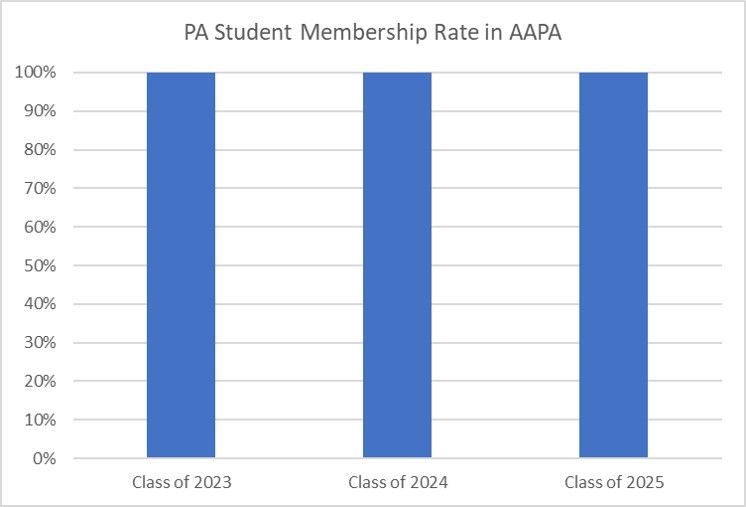
GW Accreditation
GW believes that ongoing accreditation of the University, its schools, departments, and programs enhances our reputation as a center of academic excellence and as a trusted provider of educational and professional preparation. Accreditation is important to prospective and current students, as well as to our alumni.
The George Washington University is accredited by the Middle States Association of Colleges and Schools, the regional accrediting agency and is a member of the College Board.
PA Program Accreditation
The Accreditation Review Commission on Education for the Physician Assistant (ARC-PA) has granted Accreditation-Continued status to the George Washington (GW) University Physician Assistant Program sponsored by The George Washington School of Medicine and Health Science. Accreditation-Continued is an accreditation status granted when a currently accredited program complies with the ARC-PA Standards.
Accreditation remains in effect until the program closes or withdraws from the accreditation process or until accreditation is withdrawn for failure to comply with the Standards. The approximate date for the next validation review of the program by the ARC-PA will be September 2033. The review date is contingent upon continued compliance with the Accreditation Standards and ARC-PA policy.
The program’s accreditation history can be viewed on the ARC-PA website at https://www.arc-pa.org/accreditation-history-george-washington-university/.
PA National Certification Exam 5-year Pass Rates
The National Commission on Certification of Physician Assistants (NCCPA) is the credentialing organization for physician assistants in the US. It administers the Physician Assistant National Certifying Exam (PANCE), which students must pass to practice as a certified PA.
Achievement of Program Goals
- Goal 1. Educate future PAs who possess superior knowledge and skills
-
1.1 At least 90% of didactic year students will pass the comprehensive clinical medicine examinations on the first attempt.
The Class of 2023, 2024, and 2025 exceeded the 90% benchmark (See data below).
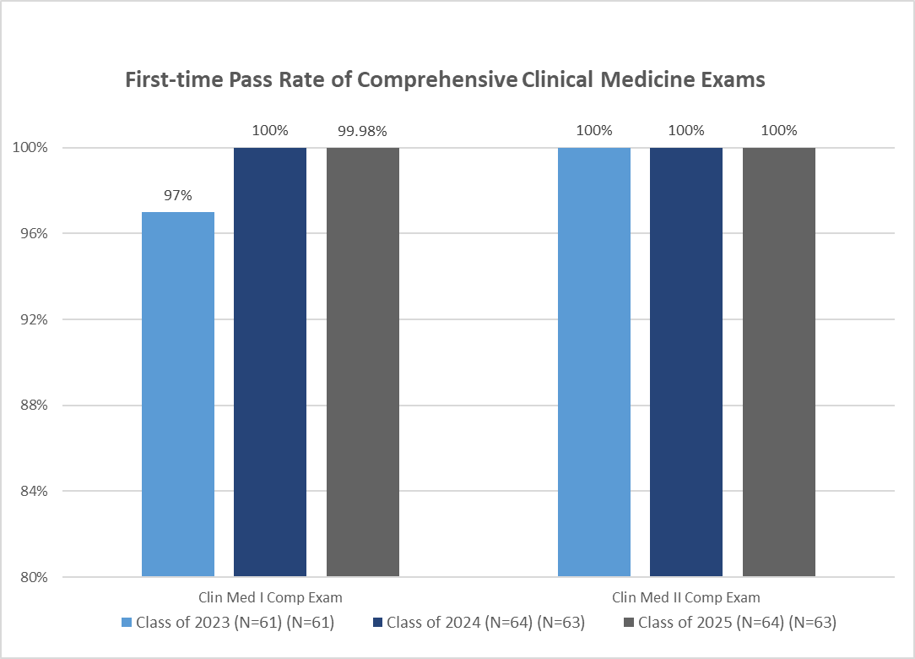
1.2 Annual class mean scores for PAEA End-of-Rotation (EOR) exams will exceed the national mean scores.
For the Class of 2024, the GW EOR exams mean scores exceeded the national average in all areas. (See Class of 2024 data below).
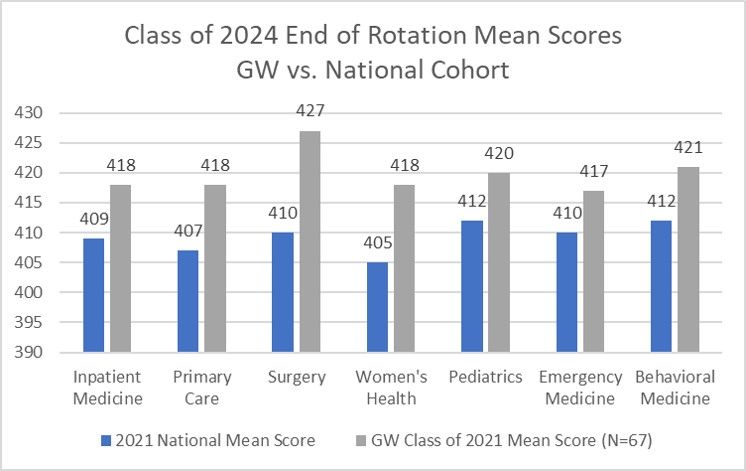
1.3 At least 95% of the clinical year students will pass the summative OSCE exams on the first attempt.
The Class of 2022, 2023, and 2024 exceeded the 95% benchmark (See data below).
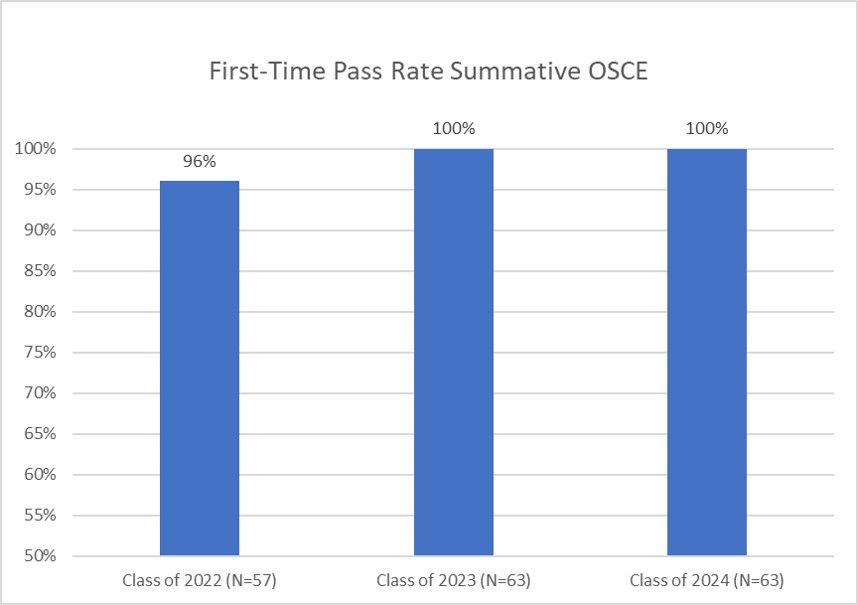
1.4 The GW class means for the 8 task categories of the NCCPA PANCE exam for first-time test takers will exceed means of first-time test takers from all US PA programs combined.
For the class of 2024, the program meets the national mean for Health Maintenance and exceeds the national means in all areas. (See Class of 2024 data below).
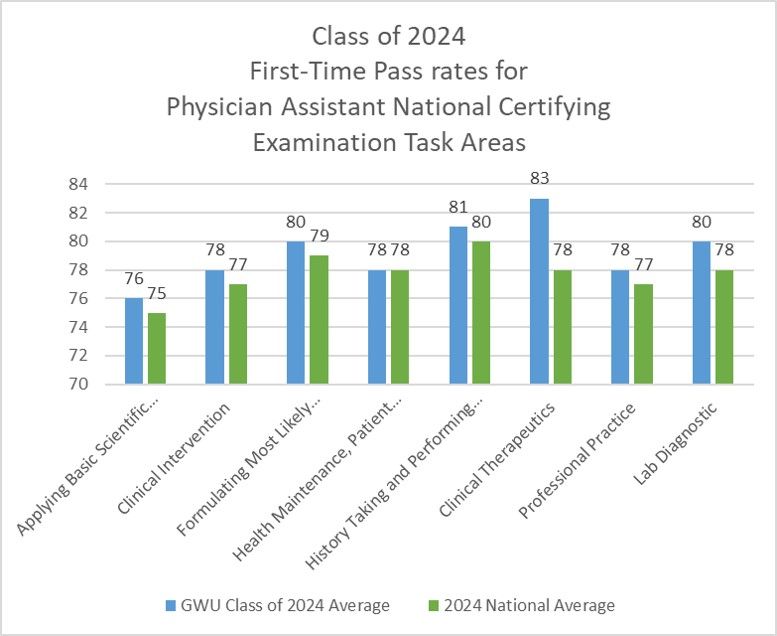
- Goal 2. Recruit and matriculate a diverse class of highly qualified students.
-
2.1 In addition to ongoing recruitment efforts, the program will participate in at least 4 pre-admission events to increase the likelihood of a diverse applicant pool.
The GW PA Program either met or exceeded the 4 pre-admission event benchmark in academic years 2022, 2023, & 2024 (See data below).
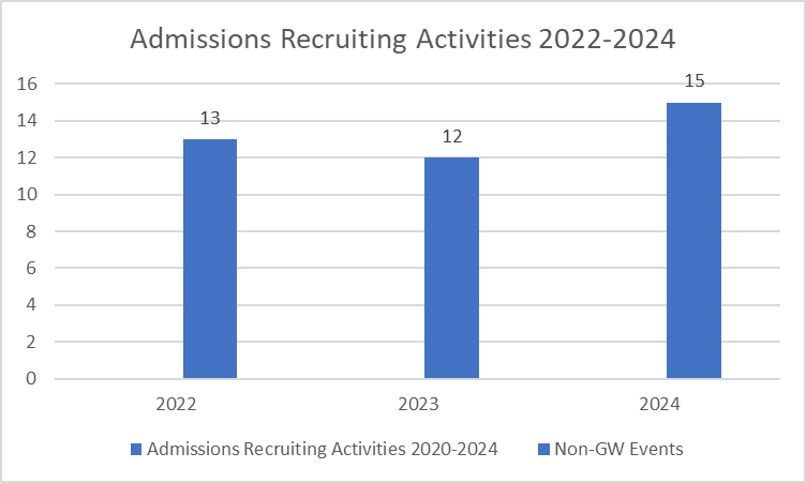
2.2 The program will maintain the diversity of the PA class at 50% with individuals who are first-generation college students, economically and/or educationally disadvantaged (50% or less of high school graduates who go to college, low percentage graduate high school, free or reduced-price school lunch), military veterans and those who live in health professions shortage areas.
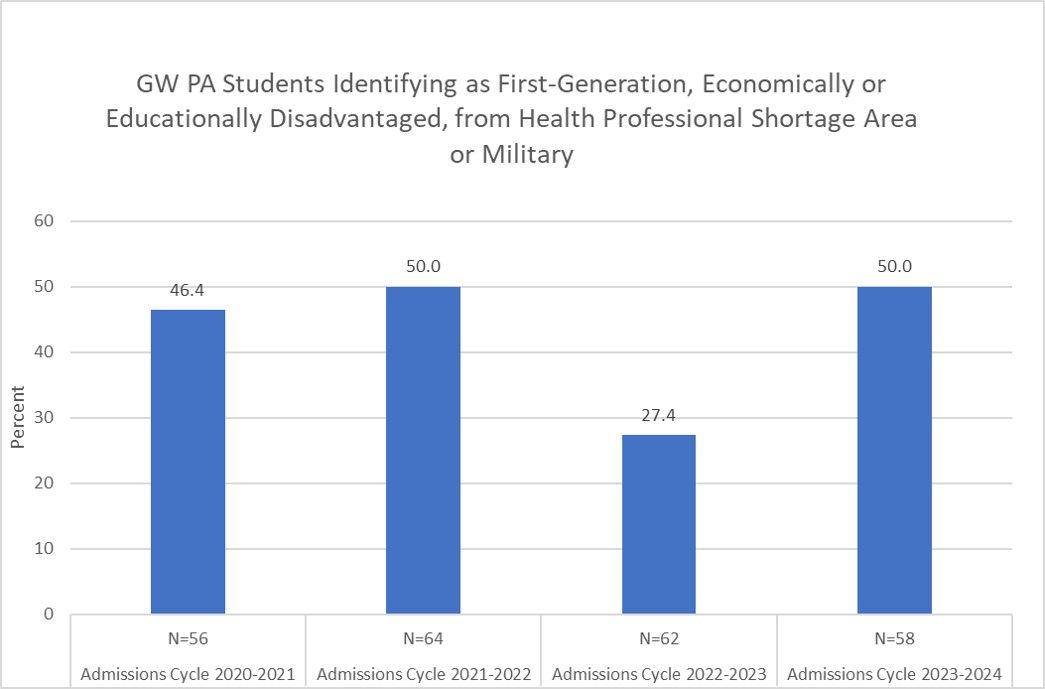
- Goal 3. Prepare students to address social determinants of health and the needs of the community.
-
3.1 Mean score on the Primary Care (PC) Clerkship preceptor evaluations of students assessing their ability to demonstrate sensitivity to culture, age, gender, gender identity, and disability issues in the clinical setting will exceed 3.5 on a 4-scale (1= needs remediation, 2=low pass, 3 = pass; 4= high pass).
For the Class of 2022, 2023, and 2024, the mean score on the Primary Care Clerkship exceeded the 3.5 benchmark for sensitivity to culture, age, gender, gender identity, and disability issues (See data below).
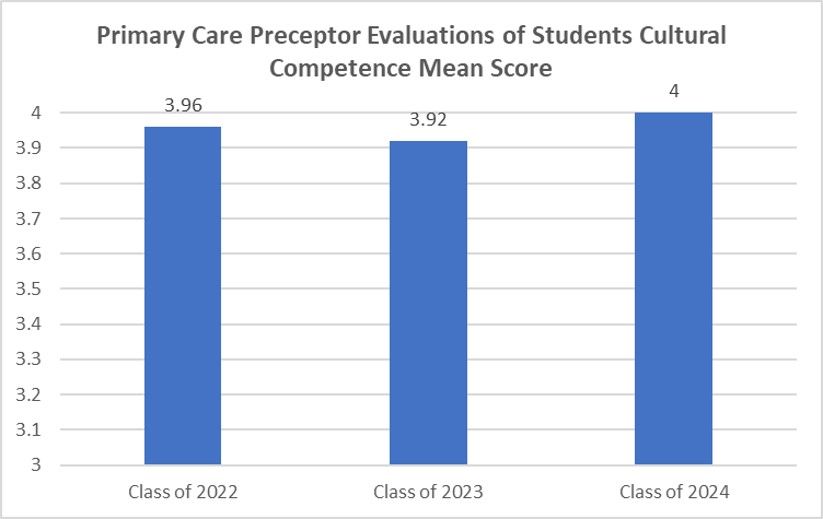
3.2 Mean score on the student exit survey regarding graduating students' perception of clinical preparedness to provide culturally appropriate communication will exceed 4.0 on a 5-point scale (1=strongly disagree, 2= disagree, 3= neither agree nor disagree, 4= agree; 5=strongly agree).
The Class of 2023, 2024, and 2025 perception of clinical preparedness to provide culturally appropriate communication exceeded the 4.0 benchmark (See data below).
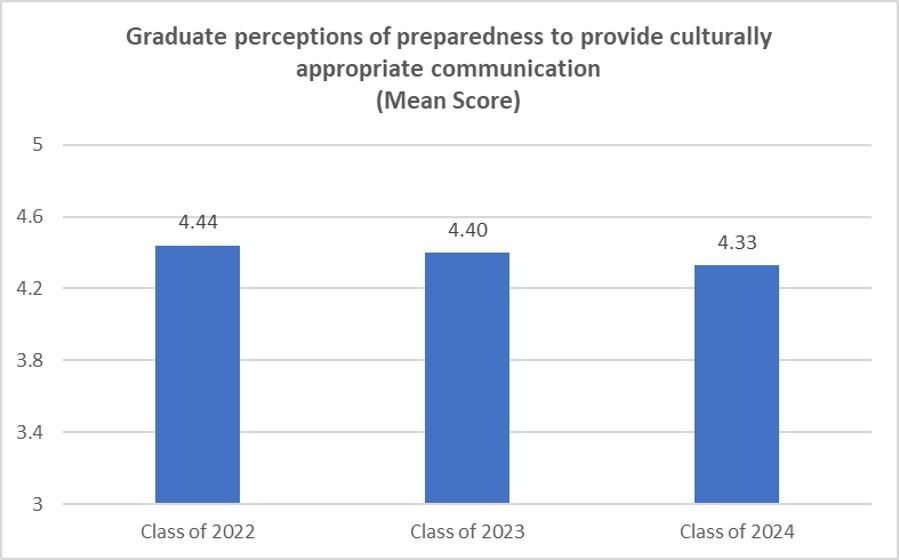
3.3 One hundred percent (100%) of didactic students will create patient education materials applying health literacy and cultural humility principles.
The Class of 2023, 2024, and 2025 met the benchmark with 100% of students completing patient education materials (See date below).

3.4 One hundred percent (100%) of didactic students participate in school-wide service day.
The Class of 2023, 2024, and 2025 met the benchmark with 100% of students participating in school-wide service day.
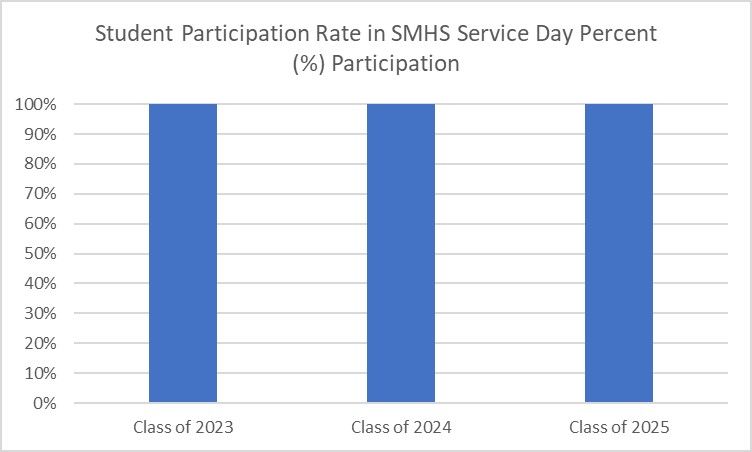
- Goal 4. Demonstrate professional involvement, leadership and service.
-
4.1 At least one hundred percent (100%) of clinical students participate in congressional advocacy training.
The Class of 2023, 2024, and 2025 met the benchmark with 100% of students participating in congressional advocacy training (See data below).
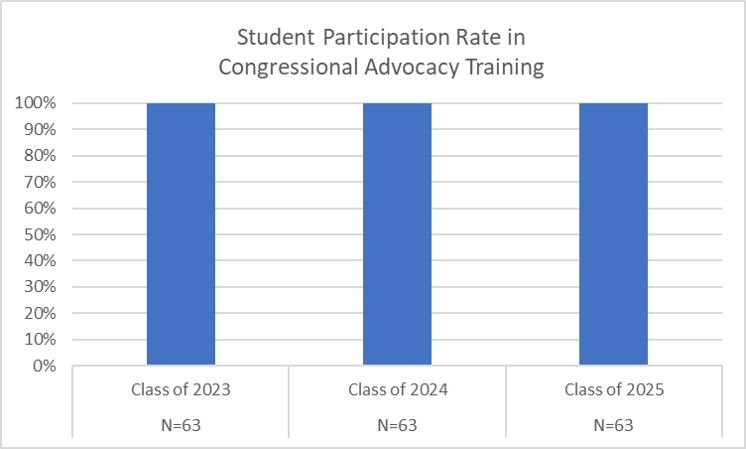
4.2 The James K. Tolton Society will participate in at least 3 outreach or public service activities each year.
The Tolton Society for the Class of 2022, 2023, and 2024 exceeded the benchmark of participating in at least 3 outreach or public service activities (See data below).
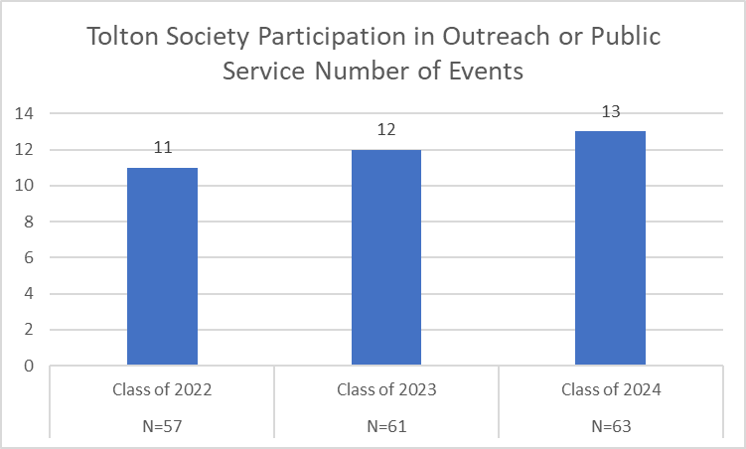
4.3 At least 50% of the principal faculty and program leadership with 2 or more years of teaching experience hold national and/or local leadership roles outside the PA program.
For academic years 2022-2023, 2023-2024, and 2024-2025, the Program exceeded the benchmark of at least 50% of the principal faculty and program leadership with 2 or more years of teaching experience holding national and/or local leadership roles outside of the PA Program (See data below).
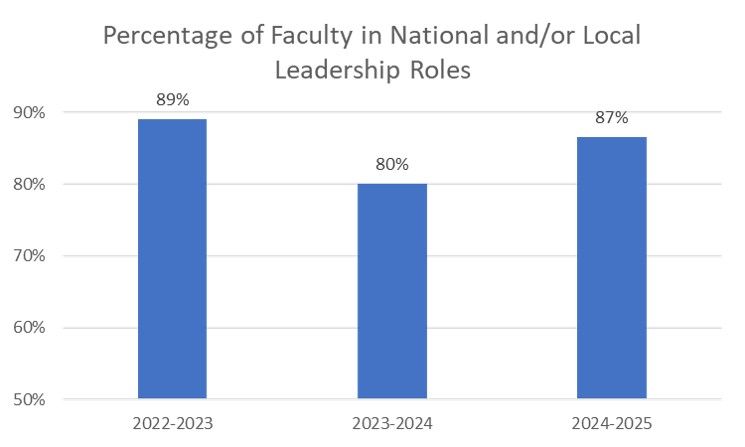
4.4 At least 25% of students hold national and/or local leadership roles or participate in leadership development activities.
The Class of 2022, 2023 and 2024 all met the benchmark of at least 25% of students holding national and/or local leadership roles or participating in leadership development activities.
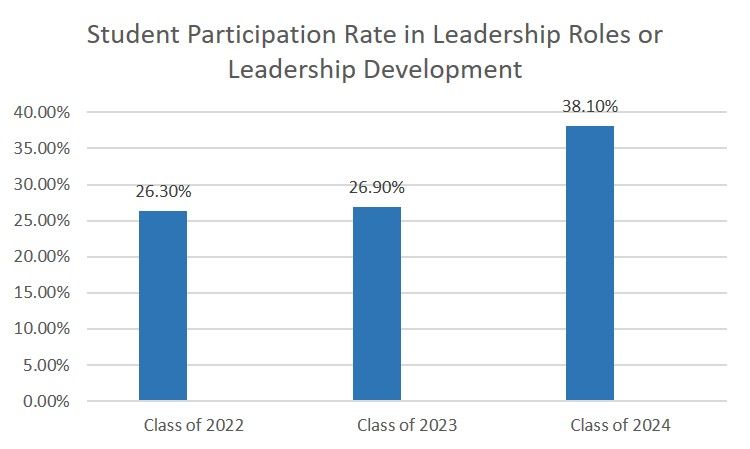
4.5 One hundred percent (100%) of PA students are members of AAPA.
The Class of 2023, 2024, and 2025 met the benchmark of 100% AAPA student membership (See data below).
